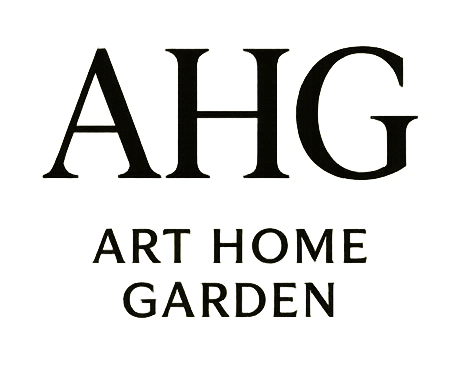Eco-friendly practices can be incorporated into nearly every aspect of your home and lifestyle. You may think that creating a sustainable garden may take more time, money, and effort than a traditional one when in fact it doesn’t. It’ll actually save you money and resources over time.
If you’re conscious about your carbon footprint and are an avid gardener or want to start a garden, we’re diving into all things related to sustainable gardening.
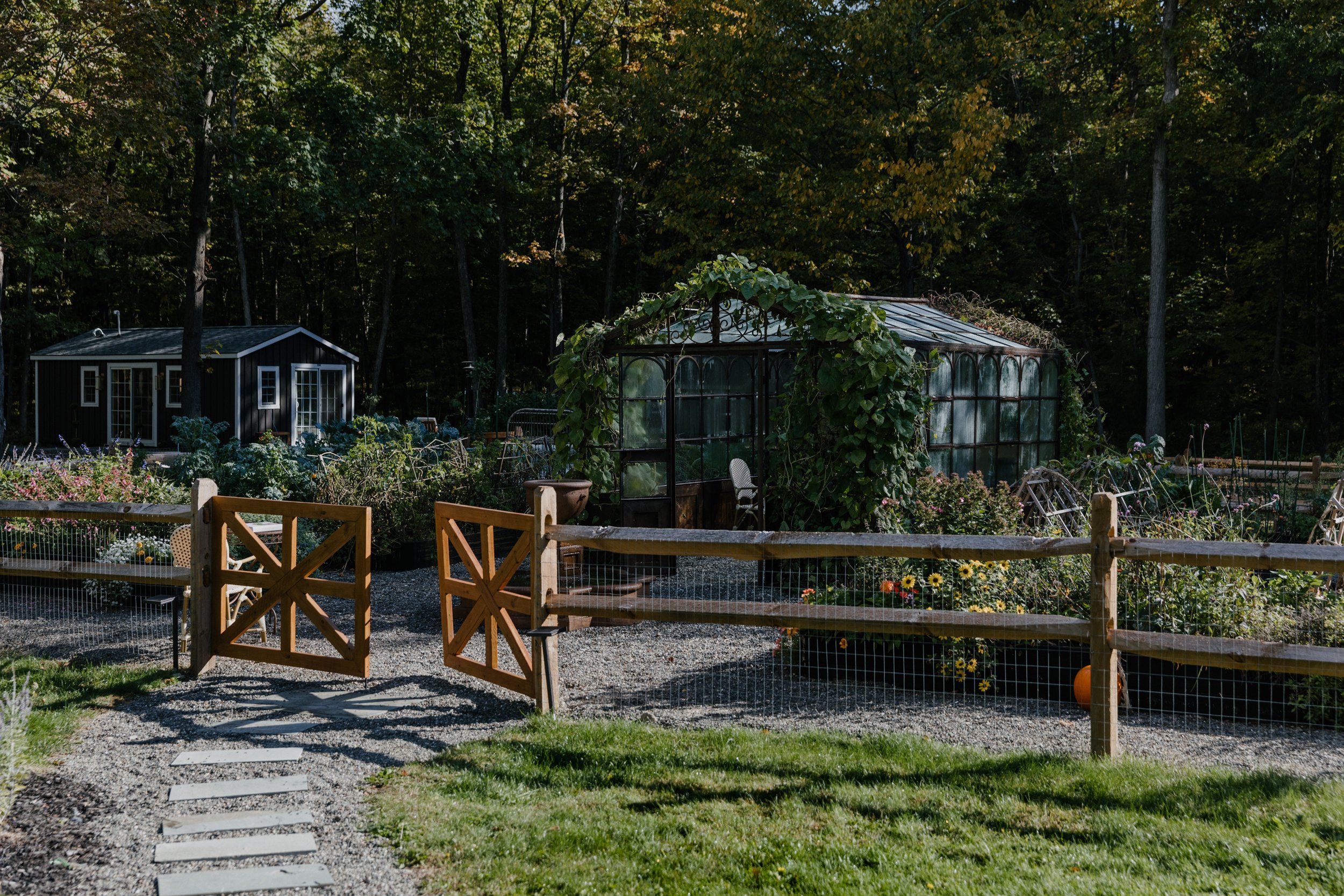
What Is Sustainable Gardening and Why Is It Important?
If you’re unfamiliar, sustainable gardening practices involve reducing waste, preserving natural resources, and avoiding polluting chemicals as much as possible. The benefits of sustainable gardening include:
- It’s better for your household — because you’re eating food grown naturally without chemicals
- It’s better for the environment — chemicals in pesticides and fertilizers have negative environmental impacts
- It’s better for local biodiversity — by supporting your local eco-system
- It’ll save you money — with a focus on recycling, upcycling, DIY, reducing waste, and energy and water conservation
Whether you’re starting your garden from scratch or you’d like to make your existing garden more sustainable, we’re covering the steps your should take and factors you should consider below.
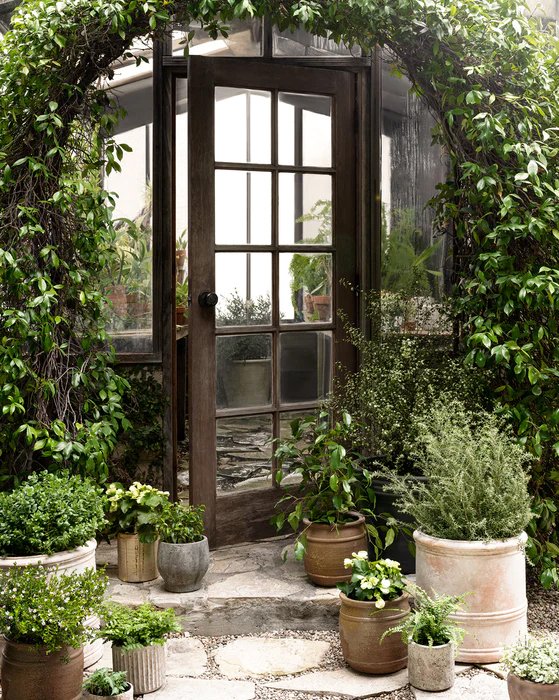
Planning Your Sustainable Garden
First, you’ll want to create a plan for your garden. So you know what you can plant and what materials you’ll need. Consider how much space you have available and the sunlight exposure – this will determine the types of plants you can grow.
Also, think about your garden goals and consider questions like — do you want to grow fresh produce? Or do you want to focus on non-edible plants and flowers? Defining your goals and priorities first will help you plan the rest of your garden including the layout, design, and types of plants you grow.
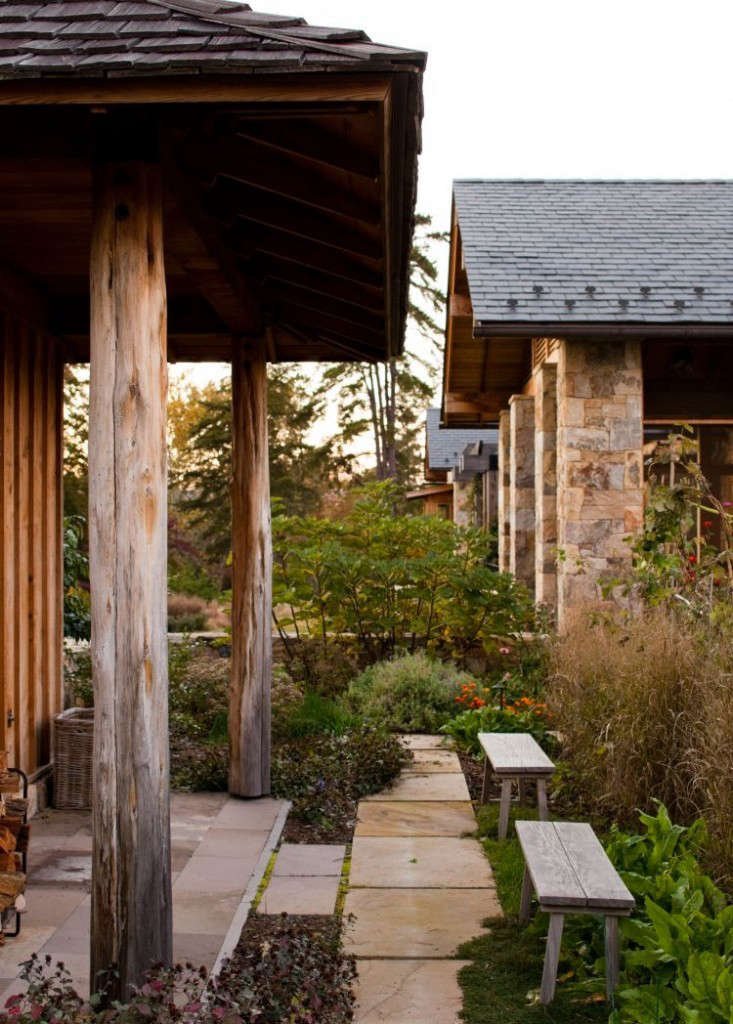
Energy Efficiency and Sustainable Garden Design
When planning your garden with sustainability in mind, you’ll want to consider these factors.
Use renewable energy or energy-efficient sources for garden lighting or water features. Think solar garden lights with LED blubs or at least only use lights when you need them. Also, evaluate your water availability and focus on water conservation. You’ll want to plan a garden that uses water efficiently so you’re not over-watering your plants or wasting water. Consider things like a drip irrigation system or harvesting rainwater. For trees and shrubs, we recommend slow-release watering bags.
Incorporate eco-friendly materials in your hardscaping and structures. Include natural shading and ventilation. Go for gravel or mulch over a grass lawn or incorporate native grasses that don’t need to be mowed and require less water.
Don’t just focus on the garden, but take a holistic approach to your outdoor space to ensure sustainability.
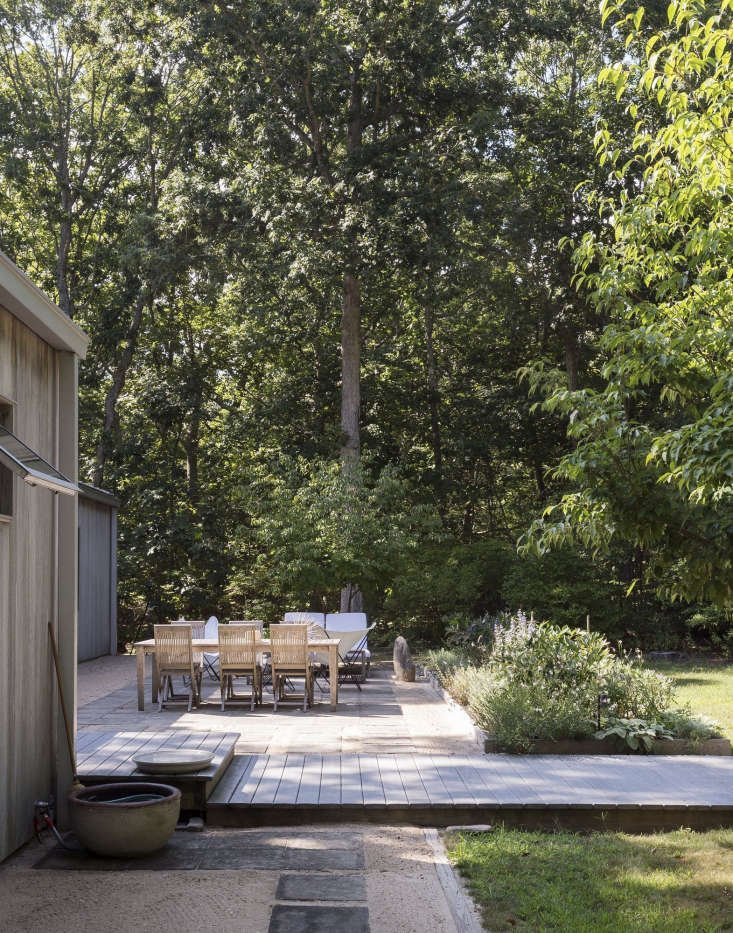
Soil Preparation
A thriving garden starts with healthy soil, so before you start planting you’ll want to test the soil to ensure it’s the right pH level for your garden. A pH level that’s too high or too low won’t be a good growing environment for your plants.
The results of your pH test will inform if and what fertilizers you’ll need to use. Go for natural fertilizers without harmful chemicals. There are options you can buy and of course, natural fertilizers you can make at home for the most sustainable option. Things like grass clippings, fallen leaves, compost, and animal manure are all great natural fertilizers.
Introduce mulch in your garden to retain moisture and reduce weed growth. Some sustainable methods include recycled newspaper or cardboard, fallen leaves, straw, and gravel.
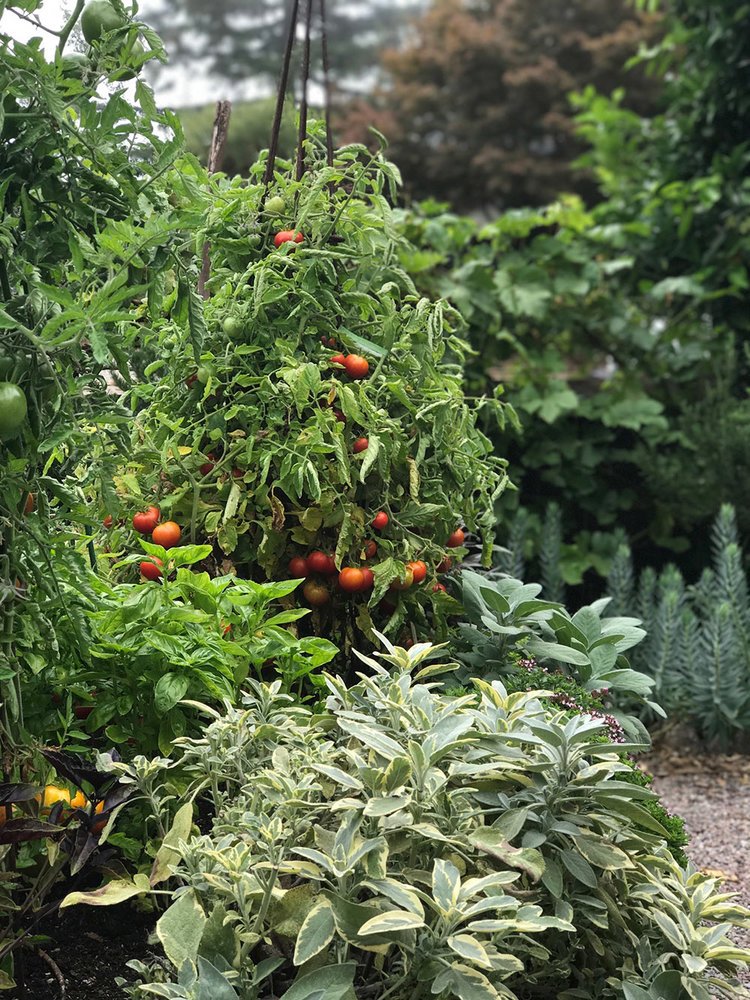
Choosing Sustainable Plants
Next, think about what plant options will be the most sustainable for your goals and environment. Consider things like
- Native and climate-appropriate plant species — these are plants that are native to your region and will thrive in the seasonal weather cycles
- Plants that require less water — also known as drought tolerant plants that do well in drier conditions
- Naturally pest-resistant plants — these plants naturally repel insects so you don’t have to rely on chemical pesticides
- Pollinator-friendly plants that promote biodiversity — they attract bees and butterflies to help your garden thrive
Once you’ve decided on what plants will work best for your priorities and local environment you can start planting!
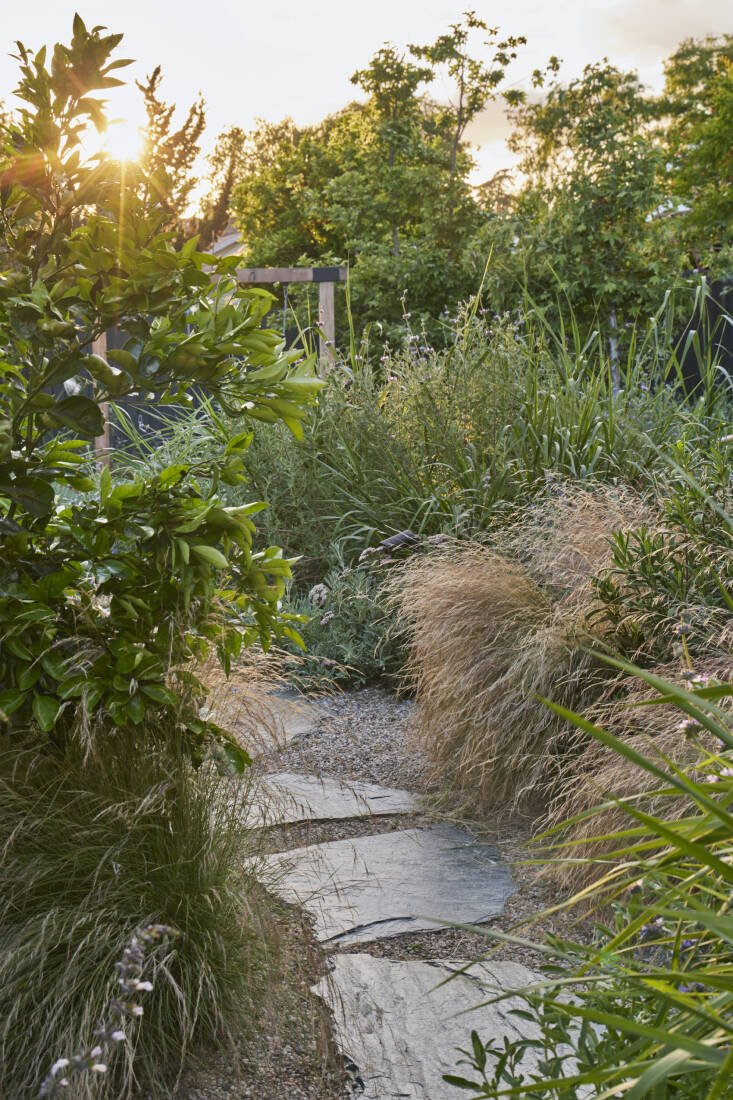
Organic Pest Control
When it comes to maintaining your garden there are a lot of pests out there that like to munch away on fruits, veggies, and leaves. You’ll want to avoid pesticides with harsh chemicals and go with natural pest control options instead.
These include adding natural predators to your garden like chickens or ducks. Or getting into the habit of regularly hand-picking slugs, beetles, and other bugs off plants is another effective way to go. Insecticidal soap works well for aphids, white flies, and spider mites. You can also consider planting flowers that attract beneficial insects that’ll prey on the pests. And as we touched on before there are plants you can incorporate into your garden that are naturally pest resistant.
When it comes to weeds, you can make your own natural weed killer using vinegar.
Whichever methods you choose it may take time, along with trial and error to see what works best for you. There’s no one-size-fits-all solution.
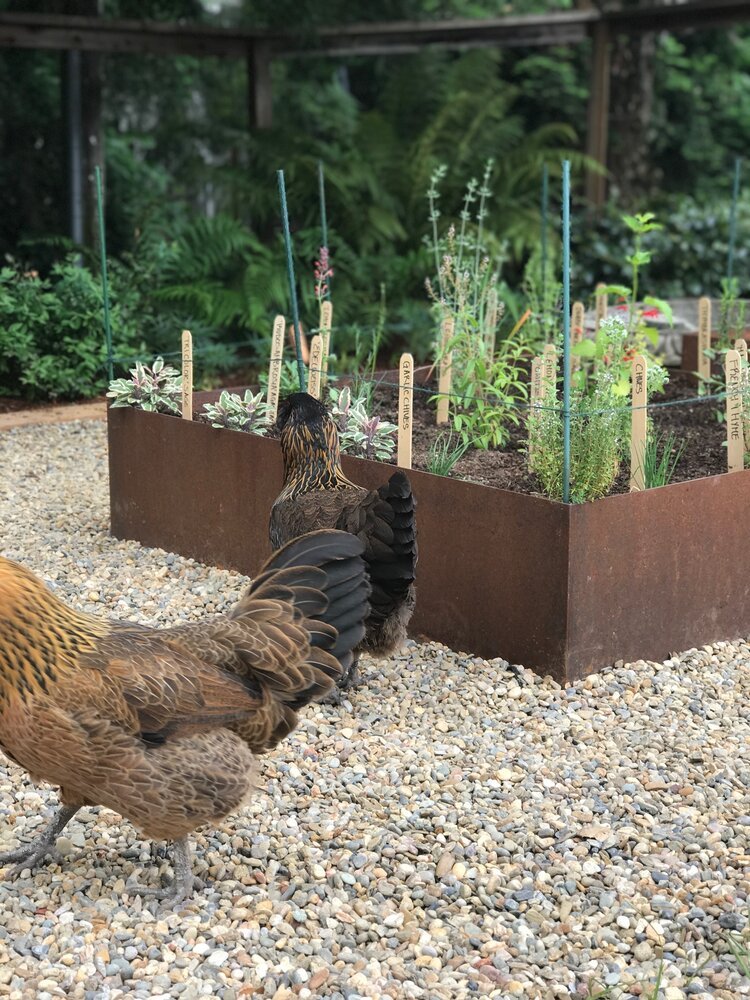
Composting, Waste Management, and Maintenance
Whether you choose to compost food waste or not you can also consider composting your garden waste. Things like fallen leaves and yard trimmings can be composted into nutrient-rich soil for your garden.
When setting up your garden and getting new materials think about what can be upcycled, reused, or recycled rather than buying new or throwing something out that can be given new life.
Also when getting into a maintenance routine adapt your garden practices to the seasons and different weather conditions. And remember you can always monitor and adjust your sustainable garden practices as needed.
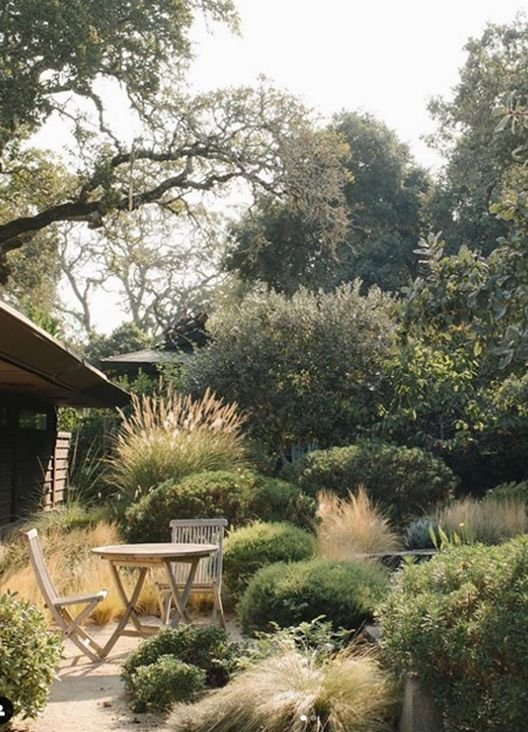
Feeling inspired to create a sustainable garden in your yard or want to incorporate more sustainable design throughout your home inside and out? At AHG Interiors, we’re a full-service interior design firm that specializes in eco-friendly and sustainable design. No matter your space, we’ll create something beautiful, functional, personal, and eco-friendly. Get in touch with us today to talk about your project.
